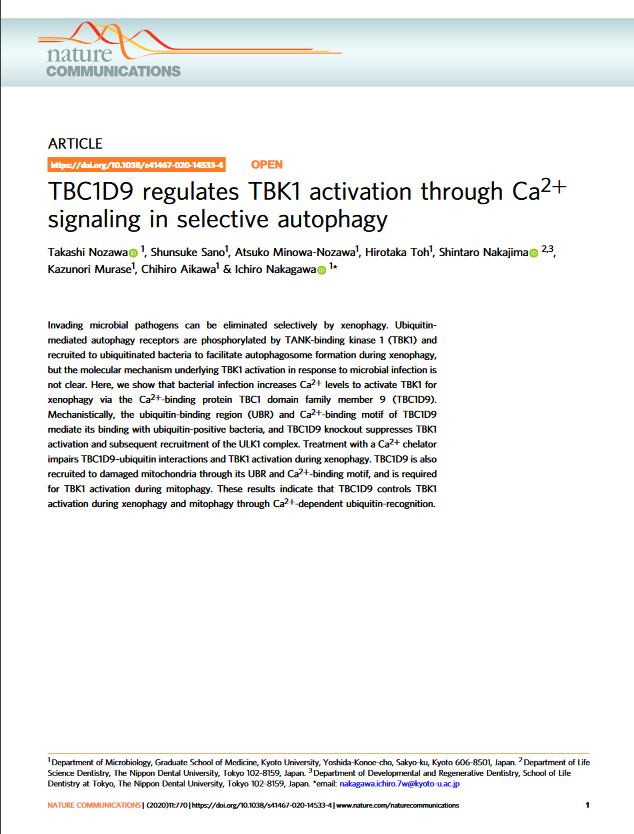24.03.2020
TBC1D9 regulates TBK1 activation through Ca2+ signaling in selective autophagy
Nature Communications , 11
Abstract
Invading microbial pathogens can be eliminated selectively by xenophagy. Ubiquitin-mediated autophagy receptors are phosphorylated by TANK-binding kinase 1 (TBK1) and recruited to ubiquitinated bacteria to facilitate autophagosome formation during xenophagy, but the molecular mechanism underlying TBK1 activation in response to microbial infection is not clear. Here, we show that bacterial infection increases Ca2+ levels to activate TBK1 for xenophagy via the Ca2+-binding protein TBC1 domain family member 9 (TBC1D9). Mechanistically, the ubiquitin-binding region (UBR) and Ca2+-binding motif of TBC1D9 mediate its binding with ubiquitin-positive bacteria, and TBC1D9 knockout suppresses TBK1 activation and subsequent recruitment of the ULK1 complex. Treatment with a Ca2+ chelator impairs TBC1D9–ubiquitin interactions and TBK1 activation during xenophagy. TBC1D9 is also recruited to damaged mitochondria through its UBR and Ca2+-binding motif, and is required for TBK1 activation during mitophagy. These results indicate that TBC1D9 controls TBK1 activation during xenophagy and mitophagy through Ca2+-dependent ubiquitin-recognition.
Anti-ULK2 (C2C3; GTX111476; GeneTex, 1:500) was used in this study to visualize ULK2 by immunoblot detection.
s TBK1 activation through Ca2+ signaling in selective autophagy


